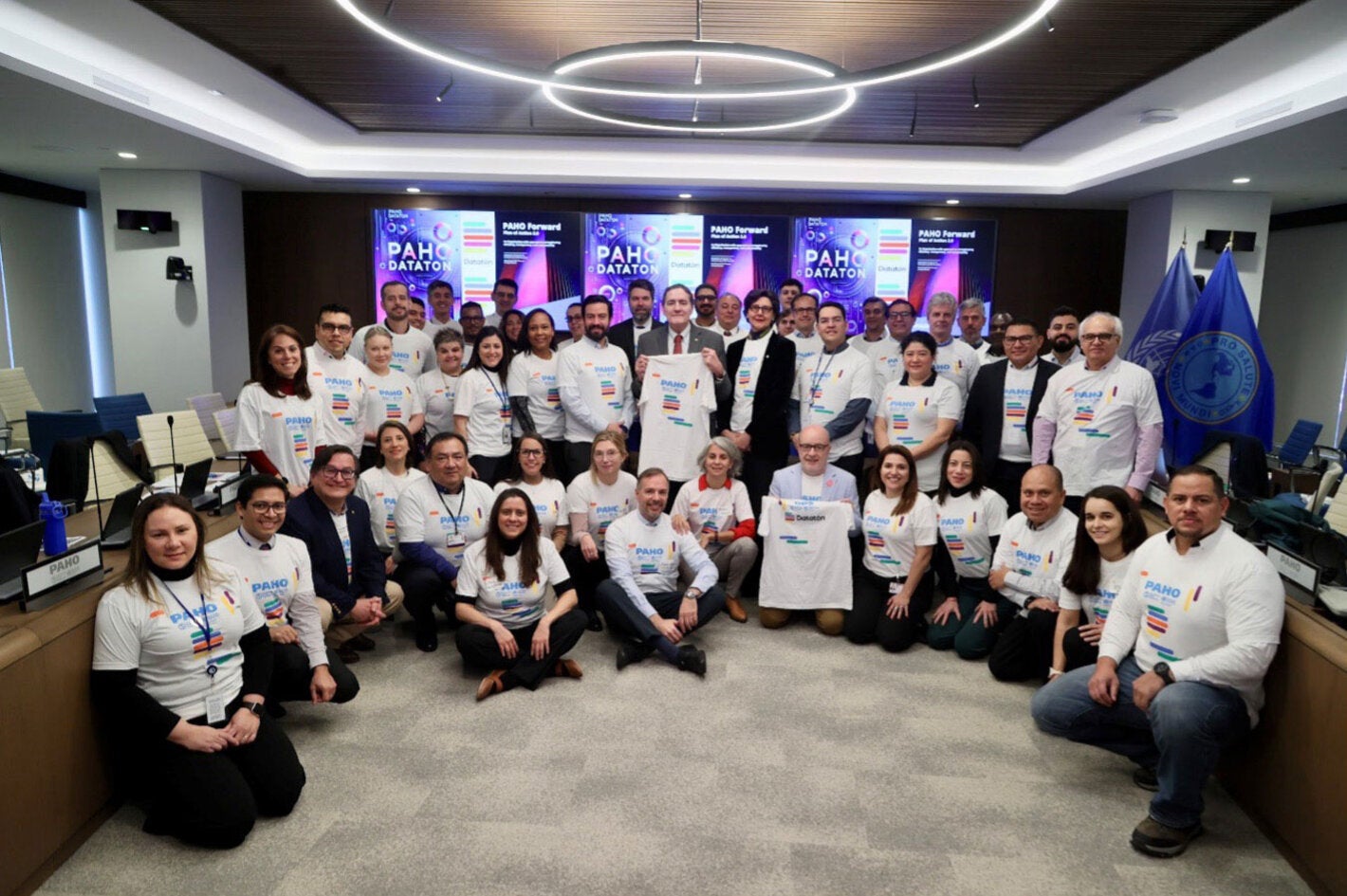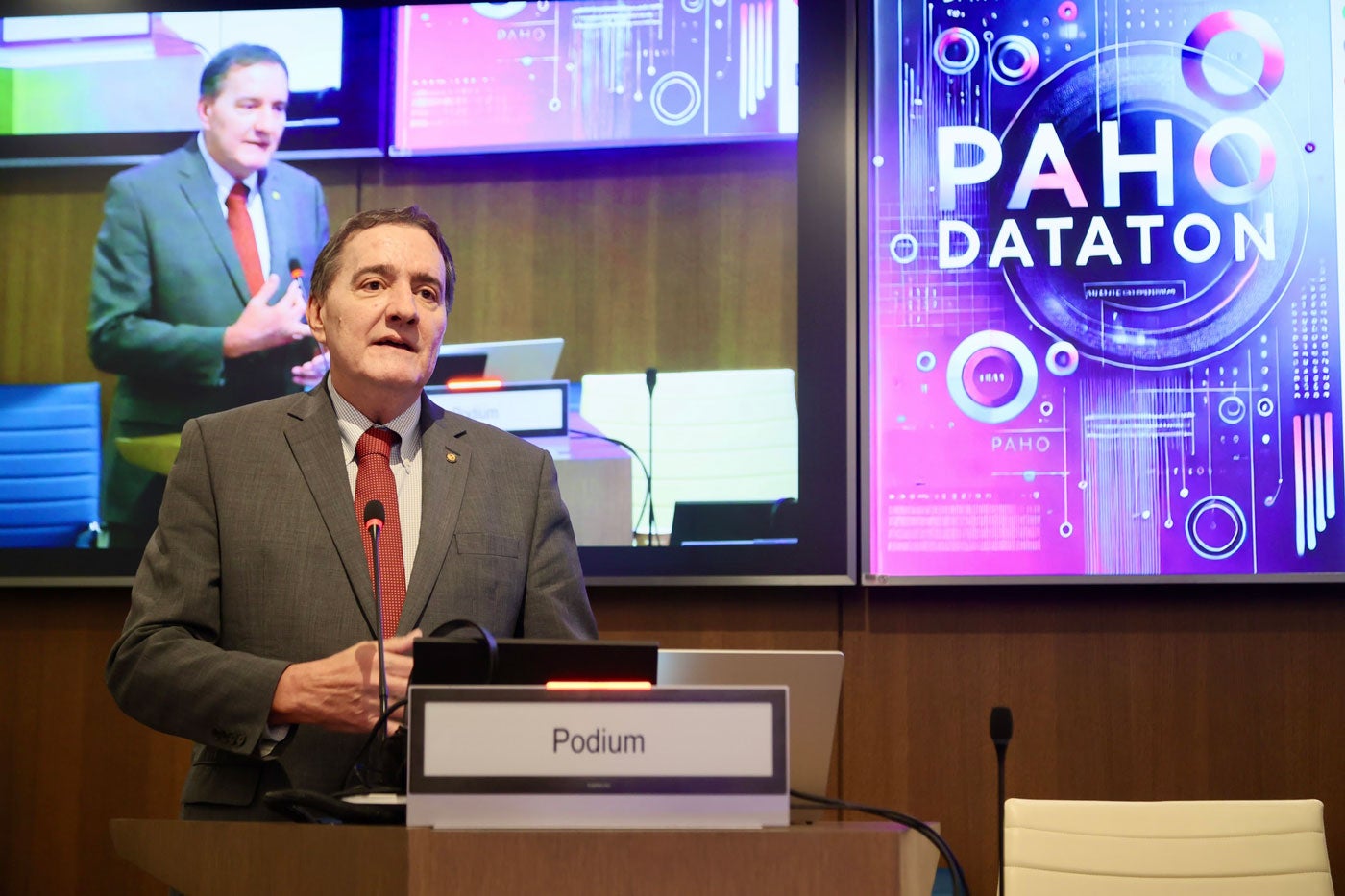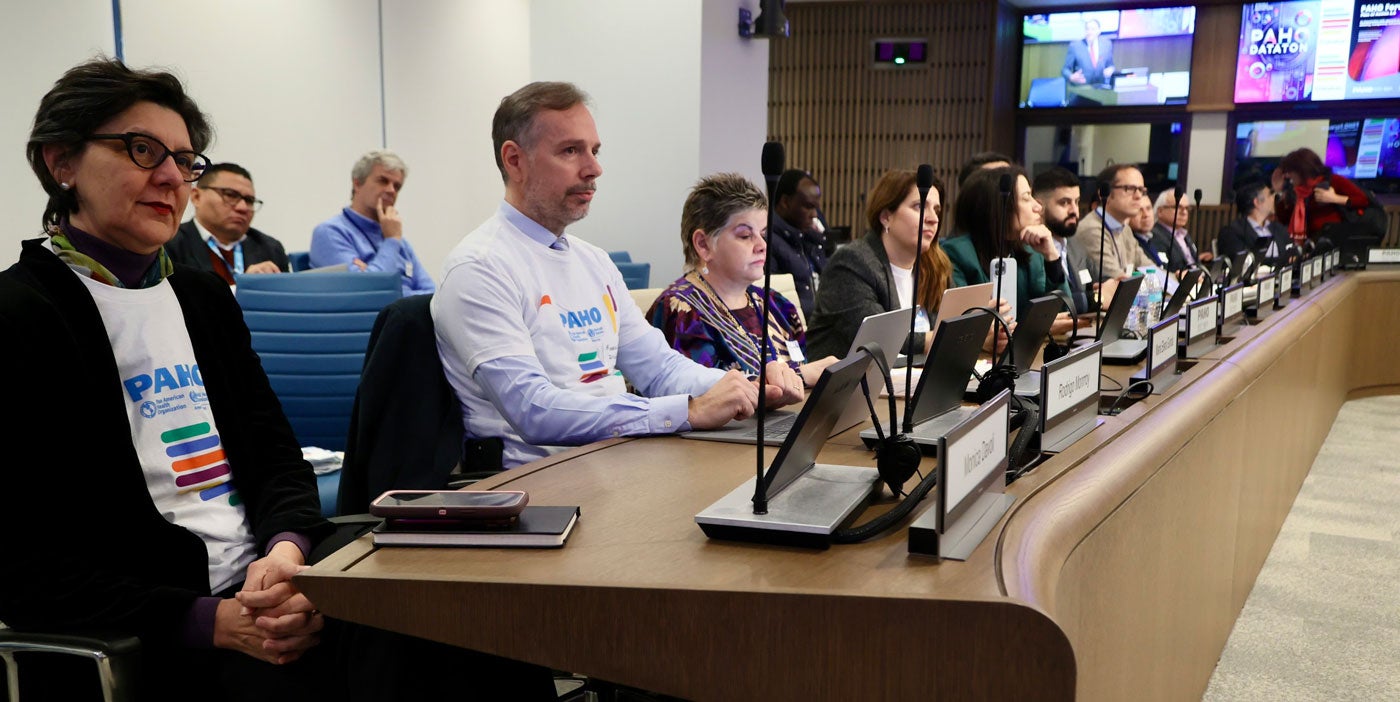
Washington, D.C., December 12, 2024 (PAHO) – On December 4-5, in the context of the Plan of Action 2.0 of the PAHO Forward initiative, the Department of Evidence and Intelligence for Action in Health (EIH) convened 60 participants from across the organization, including country offices, specialized centers and headquarters in Washington, D.C., for the first ever corporate Dataton. The two-day event focused on strategies to build a data-driven organizational culture that places quality, equity, inclusivity, and transparency at the center of decision-making and technical cooperation while accelerating the positioning of the Organization in the age of Digital Interdependence.
The sessions underscored the importance of adopting innovative data-gathering methods, open datasets, and technologies to support evidence-based solutions for health challenges.
In his opening remarks, PAHO Director Dr. Jarbas Barbosa highlighted “This event marks a historic moment for our organization, and it is much more than just an event; it is a tangible expression of the spirit of PAHO Forward, our results-oriented institutional initiative aimed at systematically innovating and modernizing our management practices”.
The activity included presentations from EIH, ITS and the Legal Department, and interactive exercises focused on a data discovery methodology. Its objectives were to foster a culture where data drives decision-making and technical cooperation, aligned with the PAHO Forward initiative to modernize and innovate organizational practices. These efforts include implementing robust data governance to ensure compliance and transparency, reimagining information architecture to enhance data accessibility, and leveraging data for impactful health insights. Additionally, the activity emphasized building staff expertise through targeted training in modern data management techniques.
The agenda included a country focused panel for exploring modern data management practices at country offices in Bolivia, Chile, Colombia, Honduras, Panama, and Suriname, as well as specialized centers like BIREME, CLAP, and the Virtual Campus; addressing challenges and opportunities than can be applied across the entire Organization.
Participants engaged in plenary discussions, Q&A sessions, and group activities to identify innovative solutions and actionable steps.
By 2025, PAHO anticipates several transformative outcomes from these initiatives:
- Decision-making across the organization and Member States will become more efficient and evidence-based, ensuring timely responses to public health challenges.
- Enhanced data literacy will empower technical teams with confidence and proficiency in data use, fostering a culture of informed decision-making.
- Strengthened alignment with Member States will promote shared priorities and strategies through collaborative, data-driven approaches.
- Networking around technical data will expand, enhancing the use and understanding of PAHO's resources.
- Additionally, embedding equity and bias prevention in data practices will drive more inclusive public health programs, while staff engagement and ownership will grow through incentives for data-driven initiatives.
These advancements will modernize technical cooperation, enabling PAHO to deliver more impactful and tailored support to its Member States.





